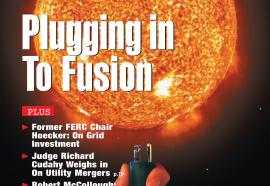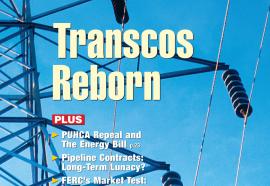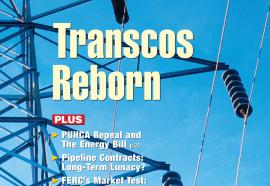Entergy on Edge
Can a single utility dispatch a regional grid system without a financial market?
Now comes Entergy’s pending plan to create an “Independent Coordinator of Transmission” to manage certain grid operations. On the surface, the plan would create independent accountability for the transmission grid, as called for in FERC Order No. 2000, with special attention paid to planning and expansion. Will the model work? Can it improve grid access for IPPs and reduce energy costs for Entergy’s ratepayers?










